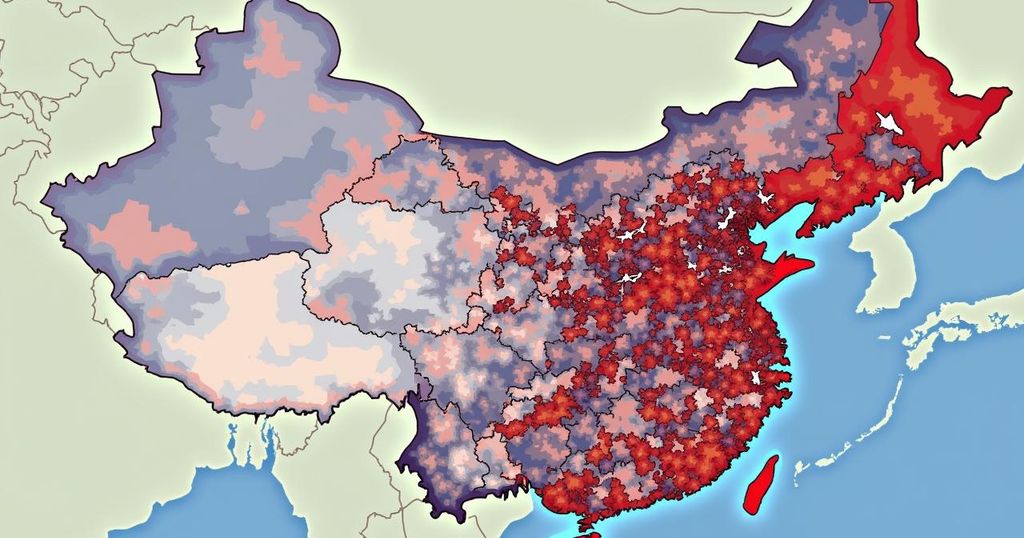Chinese citizens are closely following the U.S. presidential election, expressing both interest and anxiety. Many fear potential war and rising tensions, notably regarding Taiwan. Opinions on candidates Donald Trump and Kamala Harris vary, with older citizens favoring Trump for his perceived non-aggression, while the youth appreciate Harris for her stance on gender equality. The overarching desire is for peace and improved Sino-U.S. relations, despite concerns about tariffs and economic policies.
In recent months, the American presidential election has captured the attention of many Chinese citizens, who express a blend of interest and anxiety regarding its outcomes. Concerns about potential military conflict and its ramifications for Sino-U.S. relations dominate discussions among citizens. A senior citizen, Mr. Xiang, voiced the sentiment shared by many when he stated, “None of us wants to see a war.” He, along with fellow park-goers, discussed the uncertainty in international relations, particularly concerning Taiwan and current global conflicts in the Middle East and Ukraine. Elderly participants reflected varied opinions about the candidates, with Mr. Meng expressing preference for Donald Trump, viewing him as less inclined toward military engagement despite his imposition of economic sanctions on China. He remarked, “It is Mr. Biden who supports Ukraine’s war and both Russia and Ukraine suffer great loss from the war.” Conversely, others expressed skepticism toward Trump’s approach, particularly regarding trade tariffs that he has threatened to enforce. Younger generations also considered the implications of the election. Lucy, a 17-year-old aspiring traveler, appreciated the significance of Kamala Harris’s candidacy for gender equality, saying, “Harris’s candidacy marks an important step forward for gender equality,” highlighting a desire for improved bilateral relations through exchanges. However, there remains a palpable concern amid the youth about the geopolitical tensions that could disrupt relationships between the two nations. The article illustrates the complex spectrum of opinions across different age groups in China regarding the United States elections, with underlying themes of war, peace, trade tensions, and aspirations for international exchanges shaping these views.
The U.S. presidential elections profoundly affect global geopolitics, especially concerning Sino-U.S. relations characterized by increasing tensions in recent years over trade, Taiwan, and conflicts in the Middle East and Ukraine. China’s interest in the election reflects its apprehension about the potentially drastic changes in foreign policy that could arise from winning candidates. Citizens’ perspectives on this matter are informed not only by state media narratives but also by their own aspirations for peace and economic stability.
In conclusion, the upcoming U.S. election is being closely monitored by Chinese citizens, who are deeply concerned about the potential outcomes and their implications for Sino-U.S. relations. While opinions vary regarding the candidates, there is a common desire for peace and stability. Citizens express both hopes and fears about the future of their country’s relationship with the United States, demonstrating a keen awareness of how international politics can significantly impact daily life—both at home and abroad.
Original Source: www.bbc.com






